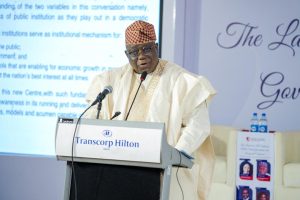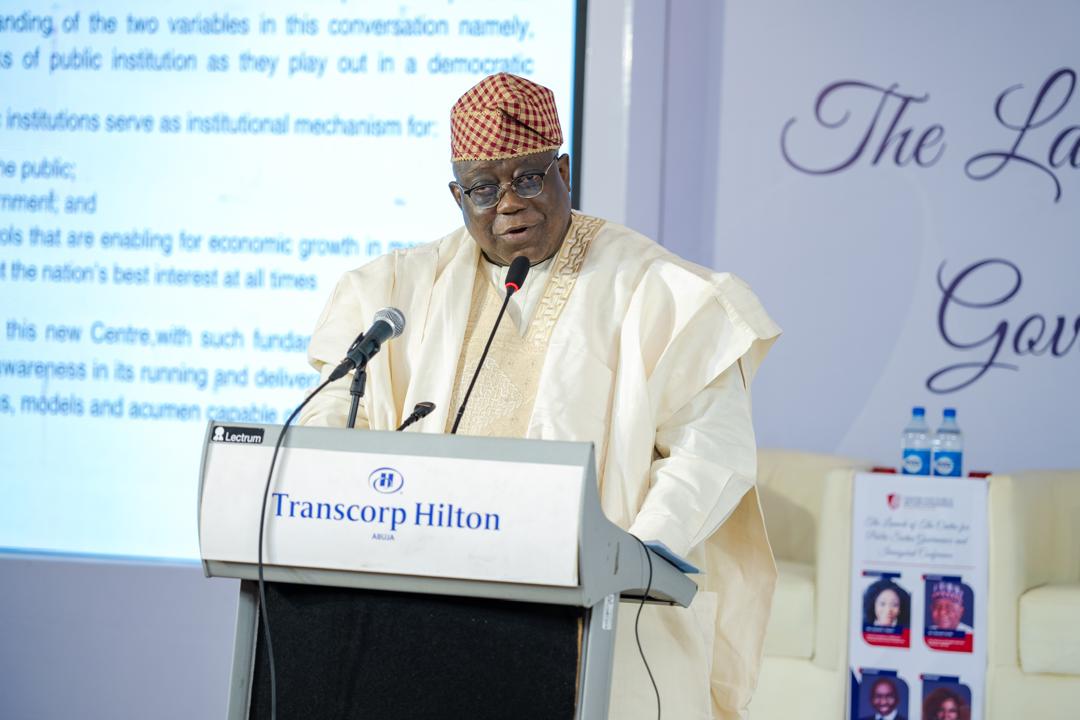“I took time when I was to profile the useful applied statistics that you can use for policy, and I discovered that 90% of them are generated by the World Bank, UN, the bilateral agencies.
When you deconstruct the underpinnings, you discover that they are not communicating Nigerian development, they are talking about how to connect to larger dependencies in a global context. it’s very sickening. So, it tells me that we are yet to understand what development is all about,” Prof. Olaopa stated.
He went on to explain that the data used in policymaking often drives decisions that prioritize issues relevant to international agendas rather than addressing local challenges.
Call for localized data solutions
Prof. Olaopa emphasized the importance of generating local data that is tailored to Nigeria’s needs. He pointed out that the country has yet to fully grasp the significance of data in driving development, as seen in the limited focus on statistics that reflect the nation’s specific challenges.

“It’s so sad that you cannot Google and get the right kind of data,” he stated
He cited the lack of attention to critical areas such as property rights, judicial reforms, data analytics, and research and development (R&D) as examples of policy gaps resulting from inadequate or inappropriate data use.
“Nigerian leaders are more interested in how many roads are built. They are more interested in structures, and contracts, but nobody’s interested in property rights, nobody is interested in judicial, you know, reform, nobody is interested in data statistics, R&D, public service, judicial reform, which are really the drivers of sustainability in any economy,” he said.
Prof. Olaopa made a strong case for the need to prioritize the development of localized data solutions. He called for the establishment of data systems that accurately capture the nuances of Nigeria’s economy and society.
More insights
- Prof. Olaopa also highlighted the disparity between Nigerian professionals working in the country and those in other parts of the world, particularly in countries like the United States and Germany.
- He observed that Nigerian professionals abroad perform significantly better than those within the country, which he attributed to the better governance and infrastructure they experience in those nations.
“Why are Nigerian professionals in the US or Germany five times more effective than those in Nigeria? It’s because they are operating in an ecosystem that promotes development. They are supported by strong governance structures and an environment that fosters innovation,” he explained.
- Prof. Olaopa stressed the importance of transformational leadership capable of navigating a rapidly changing political and economic landscape as Nigeria continues to face multiple development challenges,
- He called for leaders who are not only skilled in traditional governance but also equipped with modern competencies necessary to address issues arising from the post-COVID-19 era, including the complexities of the digital age and the pressures of globalization.
- He emphasized that Nigerian leaders must develop both technical and emotional intelligence to lead effectively.
“Leadership today requires not just technical skills, but emotional intelligence, creativity, and the ability to anticipate and respond to crises in real time,” he added.
Prof. Olaopa urged policymakers and public servants to embrace strategic anticipation, invest in building the skills needed for the 21st-century economy, and focus on the country’s most urgent needs.
